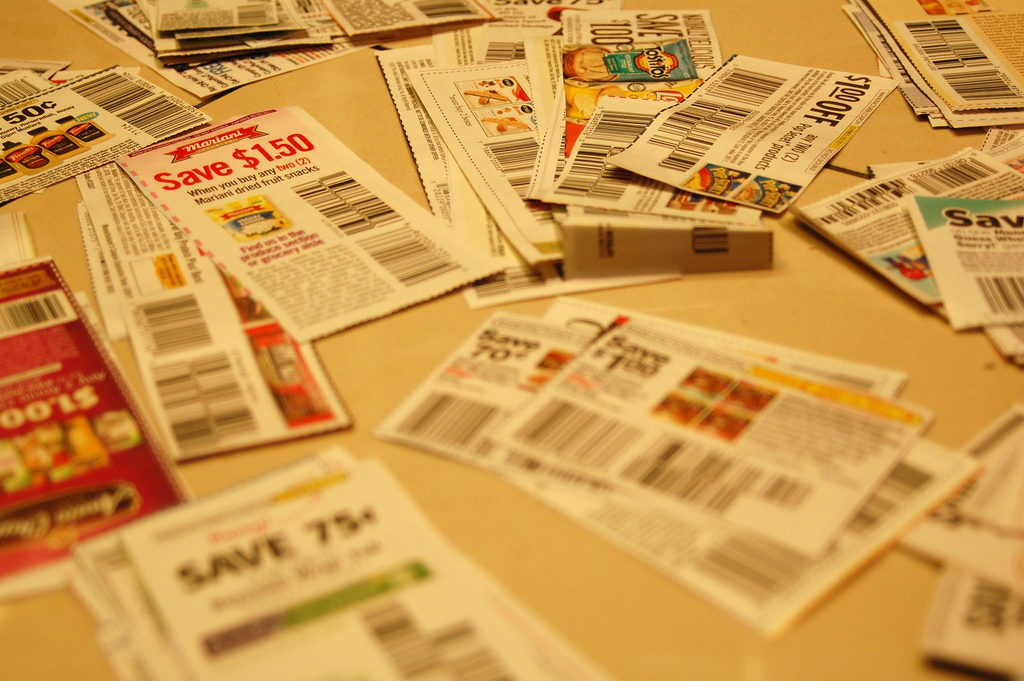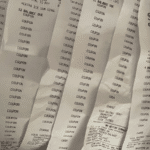
Coupon inserts are getting thinner and less in-demand, and stores and manufacturers are getting better about catching counterfeits. But stolen inserts and fraudulent coupons still show up for sale online. Buying and selling legitimate and legitimately-obtained coupons has never been outlawed, per se, but a new federal law could possibly put a crimp in some sellers’ activities.
The INFORM Consumers Act took effect over the summer. The Federal Trade Commission says the goal of the law is to “add more transparency to online transactions and to deter criminals from acquiring stolen, counterfeit, or unsafe items and selling them through those marketplaces.”
While there’s a debate over whether the law is forceful enough, or toothless, it was largely inspired by the recent rash of organized retail theft, in which gangs steal from stores and sell their stolen goods online before they can be caught. Or they might sell counterfeit consumer products cheaply made overseas, ghosting buyers after the sale so those buyers have little recourse once they find out they’ve been had.
A careful reading of the law, however, could lead to the conclusion that it pertains to those who sell stolen or counterfeit coupons as well – if anyone cares to apply it that way.
Stealing and counterfeiting are already crimes, of course. But the INFORM Act aims to make it easier to identify bad sellers and discourage them from engaging in illegal online sales. To do so, the law doesn’t directly go after those sellers. Instead, it requires online marketplaces to verify the true identities and contact information of high-volume sellers offering consumer products, making it easier for shoppers to report suspicious conduct if they think they were sold counterfeit or stolen goods.
Whether this pertains to sellers of counterfeit or stolen coupons, all depends on how you define the terms used in the law. An “online marketplace” is apparent enough – sites like Amazon and eBay are among the best known, but the FTC says it informed dozens of other sites of their obligation to comply with the law. eBay was once a hotbed for coupon sales, but isn’t so much anymore. And Amazon doesn’t allow it anymore either. As a result, many coupon sales have migrated to social media, which appear not to be considered “online marketplaces,” since they don’t facilitate sales, they just provide the platform for sellers and buyers to connect. That leaves a handful of other online auction and marketplace sites that offer coupons for sale – with some even dedicated to coupon sales alone.
But is a coupon or a coupon insert a “consumer product”? According to federal law, the definition of the term is “tangible personal property which is normally used for personal, family, or household purposes.” Coupons are tangible items used by households, but are they a means to obtain consumer products, or consumer products in their own right?
The FTC, along with retail and consumer groups that clamored for the new law, appear not to have considered coupons when the legislation was crafted. And they appear not to be interested in considering the law’s potential impact on coupons today. Following inquiries from Coupons in the News, the FTC pondered it for a month and then declined to comment. And experts and advocates like Buy Safe America, which advocates for “transparency” as it aims to “protect consumers and communities from the sale of counterfeit and stolen goods,” did not respond to requests for comment on the matter.
It might take a test case, then, before the FTC determines how and whether coupon sellers are covered. Online marketplaces are required to gather information about high-volume sellers (defined as those who make at least 200 sales per year, valued at a total of $5,000 or more), and display “a clear way for consumers to report suspicious conduct.” If they don’t, consumers can report the online marketplace to the FTC for investigation, and potential fines of more than $50,000 per violation.
So if you buy coupons online and suspect you received counterfeits or stolen property, you should be able to contact the seller directly and negotiate a refund. If the platform facilitating the sale can’t help you contact the seller, you can report them to the FTC. And then the FTC will be forced to decide whether the law actually does pertain to the illicit sale of stolen or fraudulent coupons.
For now, the passage and the implementation of the law is seen by industry groups as, at best, a good start. “Requiring high-frequency sellers on these platforms to provide basic business and contact information is a good first step toward cracking down on the sale of counterfeit and stolen goods,” the Retail Industry Leaders Association said in a statement supporting the law. Buy Safe America added that “basic transparency and verification requirements will not hurt legitimate businesses but will make it harder for bad actors to deceive consumers. It will also provide law enforcement with an important tool to track and prevent these illicit sales.”
It sure sounds just like what the coupon industry has been grappling with for years. Those who make counterfeit coupons, or steal coupon inserts from newspaper distribution facilities and sell them online for a quick profit, do just as much damage to consumers, companies and the economy as shoplifters, or criminals who sell cheap knockoffs of name-brand items like clothing or electronics. Illicit coupon sellers, and the online marketplaces that host them, may hope the INFORM Act doesn’t pertain to them. But they could be only one test case away from potentially finding out the hard way.















Sloppy writing. What does “200 sales per year valued at $5,000 or more” refer to specifically? This can easily be interpreted two very different ways:
1. 200 sales per year valued at $5,000 or more in total sales.
or
2. 200 sales per year with each sale valued at $5,000 or more
1. Fixed.